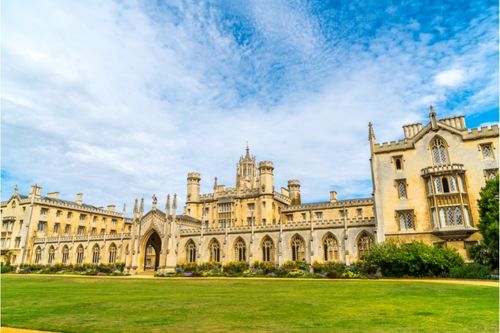Table of Contents
Dalhousie University programs for international students
Founded in 1818, Dalhousie University has a wide range of academic programs to keep a diverse group of exceptional students, scholars, researchers, and staff who collaborate with an interdisciplinary perspective and a focus on service. The university is located in Nova Scotia, Canada (Mi’kma’ki), with four campuses in Halifax and Truro, as well as satellite locations in Yarmouth and Saint John, New Brunswick. More than 4,000 courses and 200 degree programmes are available via Dalhousie’s 13 undergraduate, graduate, and professional faculties. The university is a part of the U15, a collection of prominent Canadian research institutions.
All students have access to experiential learning opportunities in their degrees, and almost 90% of use of them, giving Dalhousie the status of a prestigious institution while also providing a hands-on, collaborative education.
The university emphasizeson academic innovation implies that it is dedicated to the ongoing improvement of the programmes and courses, as well as how they are created and delivered.
One of the leading global university rating systems, QS Stars, has awarded Dalhousie a five-star grade overall and specifically in teaching, employability, learning environment, and innovation.
Facts about the university

- Number of faculties : 13
- Degree programs available: 200+
- Number of alumni: 150,000+
- ·Students taking part in work-integrated learning: nearly 90%
- Exchange programs for students: Over 90 (in more than 43 countries)
- Student clubs & societies: 400+
- Student housing spaces: 2,660 in a variety of residences
- Year of founding: 1818
- Number of professors in 2021: 1,118
- Percentage of faculty with a PhD or doctorate: 92%
- Student to faculty ratio: 18:1
Eligibility requirement
Dalhousie University’s undergraduate programs include age limits. Until and unless the admissions committee of the appropriate faculty or school gets a specific recommendation, no applicant under the age of 16 (at the time of application) is considered for admission.
Scores from Grades 10, 11, and 12 are taken into account, with a minimum need of 70-80% in the top five Grade 12 subjects and 70% in core English. Furthermore, the course and major-specific qualifying requirements will vary. You need to submit following English proficiency exam scores
- Computer-based TOEFL scores: 237, iBT 90, with a minimum score of 20 in each band.
- IELTS overall score of 6.5, with no band scoring lower than 6.0.
- Duolingo (DET): Minimum score of 115 with no component scoring lower than 95 PTE: Overall score of 61 with no skill scoring lower than 50
- C1: Advanced/C2: Proficiency: 180 overall, with no band scoring lower than 170
- CAEL (Canadian Academic English Language Assessment): 70
- CanTEST: 4.5
Dalhousie University acceptance rate
Dalhousie University’s admittance rate runs from 60 to 70%, with modest fluctuations year after year. A student must also satisfy both the basic admission standards along with the program-specific requirements. Please be aware that achieving the prerequisites does not guarantee admission. These are the minimal requirements for eligibility in order to get admitted. A student must maintain a high academic record and competitive test scores because admission to each program is tough. Dalhousie assesses a student’s overall profile. The interview process is a great chance for applicants to the MBA program to introduce themselves to the university.
Rankings and ratings

the list of the Best Global Universities. Schools are ranked based on their performance across a set of widely regarded excellence factors.
The University is in the 314th position on the list of the Best Global Universities. Schools rank on their performance across a set of excellence factors. More information on rankings and ratings.
- Best Global Universities (tie) #314
- Best Global Universities in Canada #11
Dalhousie University Subject Rankings
- Agricultural Sciences (tie) #228
- Biology and Biochemistry (tie) #325
- Chemistry (tie) #360
- Clinical Medicine (tie) #225
- Computer Science (tie) #428
- Engineering (tie) #447
- Environment/Ecology #109
- Geosciences #174
- Immunology #242
- Materials Science #644
- Molecular Biology and Genetics (tie) #316
- Neuroscience and Behavior (tie) #269
- Oncology (tie) #318
- Plant and Animal Science (tie) #318
- Psychiatry/Psychology (tie) #176
- Public, Environmental and Occupational Health (tie) #212
- Social Sciences and Public Health #243
Fee structure
For Canadian students
Undergraduate tuition fees range: $7,063 – $8,346
Graduate tuition fees range : $7,552 – $8,835
For international students
Undergraduate tuition fees range: $18,738 – $23,28
Graduate tuition fees range: $19,227 – $23,775
Key takeaways
- Dalhousie University is a large public research university in Nova Scotia, Canada with overall 12th rank in Canada, which emphasizes on academic innovation as well as overall excellence of a student.
- The acceptance percentage at Dalhousie University ranges between 60 to 70%, with small changes every year
- The average fees for studying at Dalhousie university range from $7000 – $24000 depending on different courses and nationality
Did you find this blog informative? If so, please share your thoughts in the comments below. Click here to contact us for more information on the topic. We would be happy to assist you with your queries.
Liked this blog? Read next: McMaster University | Courses and rankings
FAQs
Q1. What GPA is required for Dalhousie?
Ans. To graduate, students must have a cumulative GPA.
Q2. Is Dalhousie a good place to study business?
Ans. Dalhousie University is ranked first in Halifax for Business (Management) and twenty-first in Canada. It is listed in the ‘ARWU by subject – Academic Ranking of World Universities – ShanghaiRanking.’
Q3. What is the highest ranking for lhousie University ?
Ans. Dalhousie University achieved #8 in MacLeans University Rankings – Medical Doctoral Universities. This is the university’s highest ranking in the 134 rankings tracked on our website.







